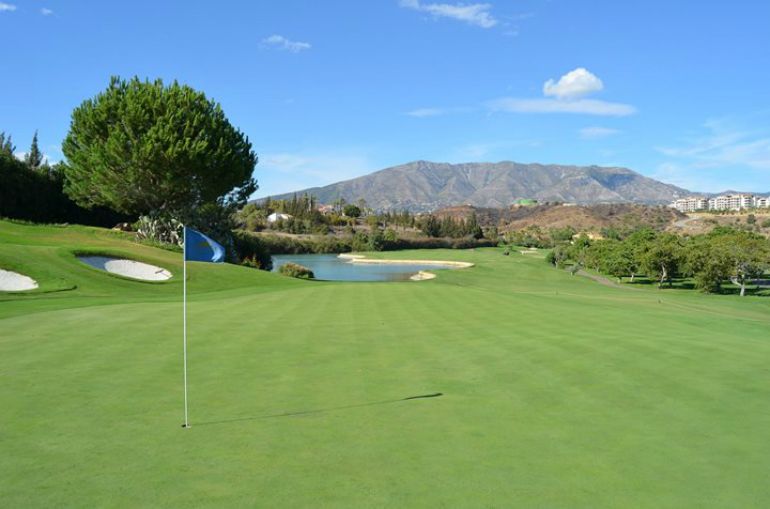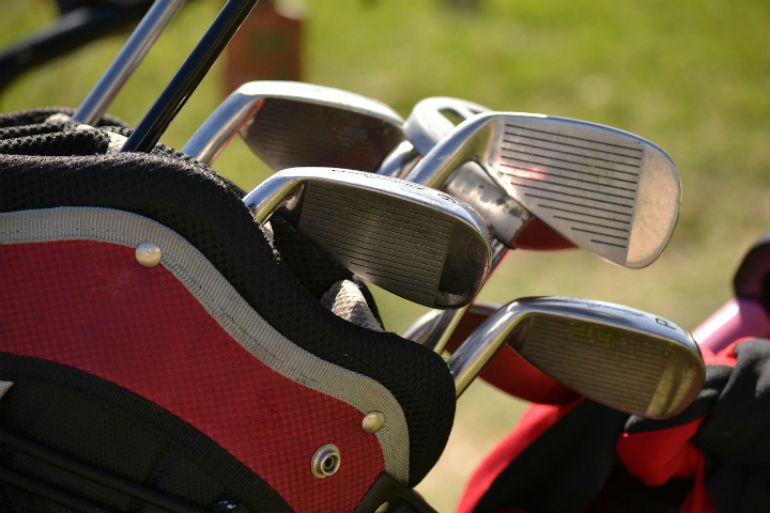Share:
Take it offline!
This Education in Motion resource is also available as a printable PDF.
Download PDF
Golf is a wonderfully social sport for people of virtually all ages and physical abilities. One of the core aspects of the sport is its unique handicapping system, which is a calculated measure of players' individual abilities to compete on equitable terms. This system has, in turn, leant itself to the development of adapted golf for players with disabilities.
Adapted golf uses a modified set of rules which optimises the game's accessibility. Similar to other adapted sports, like swimming, golfers with disabilities are assessed and classified dependent on how their physical capabilities affect their performance. These classifications allow golfers with disabilities to compete equitably alongside able-bodied opponents, as well as other players with different disabilities.
Although golf isn't included in the Paralympic Games, there are many opportunities for players to enjoy the sport both recreationally and competitively in Australia. Golf Australia provides a national gateway for people with disabilities during every stage of their golfing career, whether they enjoy the sport recreationally or competitively. They provide an extensive resource of information about adapted golf, as well as training programs for children and adults looking to get into the sport, and a database of accessible clubs and tournaments.

The Modified Rulebook for Adapted Golf
According to Golf Australia, the rules of the game have been modified for adapted golf as to achieve the desired result of making the sport accessible and fair for all players with disabilities. The R&A, in conjunction with The Open Championship and World Amateur Golf Rankings, have published a full guide to the modified rules of adapted golf, which came into effect on January 1, 2012.
The guide covers each potential rule modification and all of the considerations that can be made in great detail, but here are a few examples from the guide:
Assistance: "Prior to the stroke, it is permissible for a disabled golfer to accept physical assistance from anyone for the purpose of positioning themselves, or any assistive device that they are using."
In non-adapted golf, the player is not allowed to accept assistance while making a stroke, nor are they allowed to seek cover from the elements.
Caddies and Aides: In mainstream golf, players are only allowed to employ the assistance of a single caddie at any time during the game. However, this rule is modified in adapted golf so that it is "permissible for a wheelchair golfer to employ both a caddie and an aide to assist them." However, the aide is not allowed to handle or carry the player's clubs.
Equipment: Assistive devices and equipment may be permitted to be used during the game. R&A provides a list of equipment that is permitted to be used for medical reasons, but it is always a good idea to check with your club, or any club you are planning to join, if your equipment is allowed. If your equipment is not already listed, you are able to apply for it to be used during your game.
Classifications
Similar to many adapted sports, competitive golfers are assessed and classified in accordance with the impact that their disability will have on their gameplay. According the European Disabled Golf Association, the group which outlines and governs the classifications for adapted golf, the game relies on the following physical functions which are tested by a trained professional in the classification process.
Legs: Rage of motion, muscle strength, and leg length.
Arms: Range of motion, muscle strength, and arm length.
Spine: Range of motion.
Overall body: Grip, limb deficiency, neurological function, and vision.
Once they have been tested and assigned a classification, players will be able to play at Golf Australia and European Disabled Golf Association events and competitions.

Events and Competitions
Each year, there is a rich calendar of national and international adapted golf events which Australian players compete in.
Some of the bigger events for the remainder of 2018 include:
- German International Disabled Championship in Hamburg, Germany from August 11-12
- National Amputee Golf Championship in Michigan, USA from August 20-23
- English Disabled Open in the UK from August 24-26
- WA Blind Golf Masters in Western Australia from September 3-4
- WA Blind Golf Open in Western Australian from September 6-7
- ISPS HANDA World Blind Golf Championships in Rome, Italy from October 3-6
- Deaf Golf NSW Championships in New South Wales from October 13-14
- NSW Blind Golf Open in Bankstown, New South Wales from October 22-23
Australian Adapted Golfing Organisations
If you are looking to embark on your golfing journey, there are many organisations across the country that provide training and assistance to players with disabilities.
Golf Australia provides a rich resource of information about adapted golf for Australian players, including links to local clubs and events. In conjunction with State Golf Association, they run introduction and golf instruction programs which are designed to include members of the disability community.
Empower Golf Australia run a national golf clinic program for players with disabilities, and campaign in support of accessibility for all golfers. They have established hubs for golfers with disabilities in New South Wales, Victoria, Queensland, and Western Australia. These hubs are equipped with an OttoBock Paragolfer, a device which makes it possible for players with mobility restrictions to stand up to play.
Amputee Golf Australia is the national body which runs the Australian Amputee Golf Open each year. They work with state associations and Golf Australia to increase accessibility for amputee golfers.
Deaf Golf Australia's aim is to promote, encourage, and empower people who are deaf and hard of hearing in their golfing journeys. They run training sessions and golfing events to help players enjoy everything that golf has to offer.
Golf truly is a sport for everyone. With just a few rule modifications for accessibility, players with disabilities are able to compete equitably with any other player, both professionally or just for leisure and exercise. Adapted golf has a rich and long history, and a very bright future in Australia.